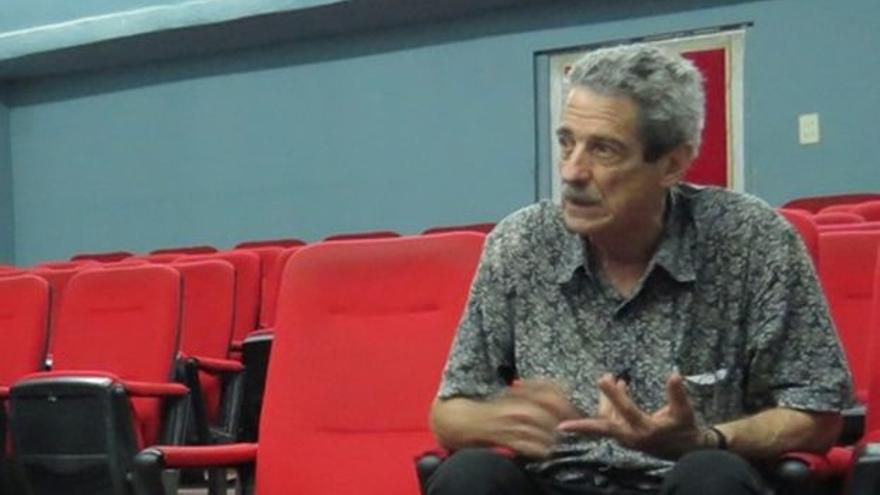
![]() 14ymedio, Havana, 22 July 2021 — Cuban filmmaker Fernando Pérez said that to overcome the crisis in Cuba that led to the July 11 protests a “new political language” needs to be built without violence and without the dark “acts of repudiation,” he stressed in an interview with AFP news agency.
14ymedio, Havana, 22 July 2021 — Cuban filmmaker Fernando Pérez said that to overcome the crisis in Cuba that led to the July 11 protests a “new political language” needs to be built without violence and without the dark “acts of repudiation,” he stressed in an interview with AFP news agency.
The multi-awarded director, winner of a Goya for his film La vida es silbar (1999) and the Biznaga de Oro award for best film for Últimos días en La Habana (2017), considered that with “the social crisis that the country is going through, there has to be an explosion, which I tell you, I don’t know how far it’s going to go”.
During his participation on November 27 in the demonstration of hundreds of artists and creators, which took place in front of the Ministry of Culture in Havana to demand freedom of expression, he lamented the breakdown of dialogue. “I felt that something was really changing in our reality,” he told AFP, referring to the fact that the 300 participants in the protest “are asking for what I call a new language.”
For Pérez, a director who is very close to the new generations, they should not be “only of words but of attitudes, of solutions, of radical changes in our country”, for which he considered that they should include “freedom of expression, respect for those who think differently and open independent spaces, not only in art but also in other spheres of reality.”
The demonstrations, warned the Cuban filmmaker, respond to the “lack of that new language, of that new attitude of a country that has to open up to the participation of these young people, because they are not the future, they are the present”. They are the result of “the pandemic, the new order, the blockade…The phenomenon is there, what I saw in front of the Capitol. It is a rebellious attitude that I share”.
The multi-awarded director took time to talk about the contradictions of Cuban cinema. He defended, he said, the policy of “propaganda” to turn it into a “cultural fact”.
“The development of that policy has faced elements of freedom, of regression, of contradiction,” he said, referring to the so-called ’Five Grey Years’ between 1971 and 1976. A period in which “everything was confused, reduced to an ideological view, really very overwhelming, very closed, which has left very deep marks, some of which are irreparable.”
Pérez has been for many years the standard bearer of the new generations of filmmakers on the island, and in 2012 he resigned as director of the Muestra de Cine Joven, an annual meeting that brings together and disseminates proposals of new audiovisual creators. “Not being able to demonstrate in practice the inclusive coherence that I have proposed for the show, I have taken the personal decision not to continue at the head of it,” he said then and after several acts of official censorship.
Translated by: Hombre de Paz
____________
COLLABORATE WITH OUR WORK: The 14ymedio team is committed to practicing serious journalism that reflects Cuba’s reality in all its depth. Thank you for joining us on this long journey. We invite you to continue supporting us by becoming a member of 14ymedio now. Together we can continue transforming journalism in Cuba.
